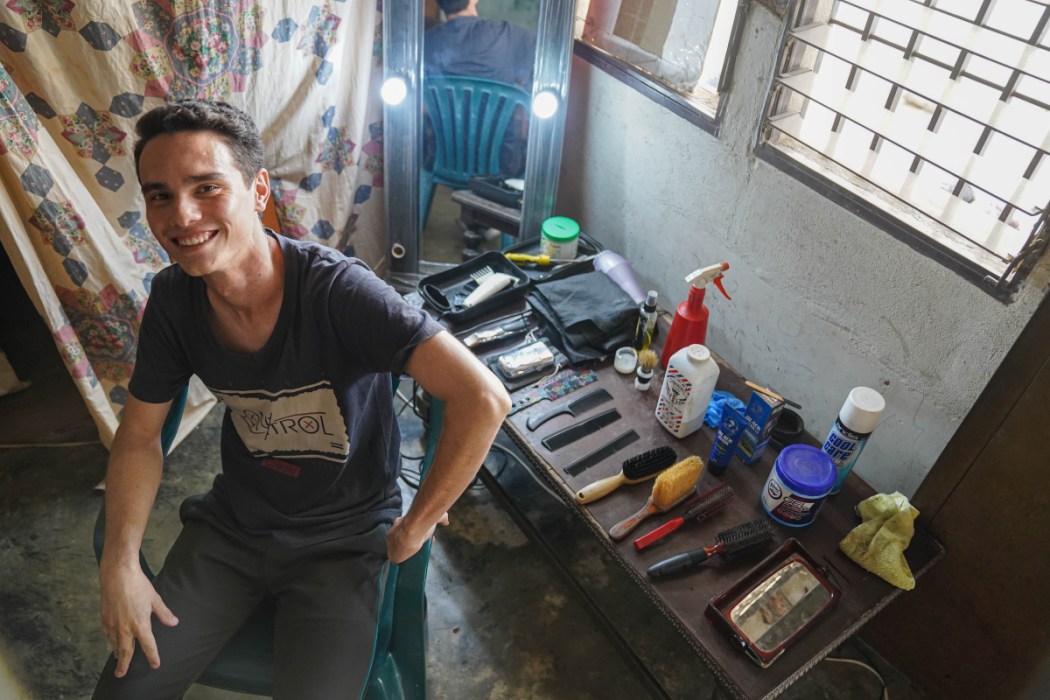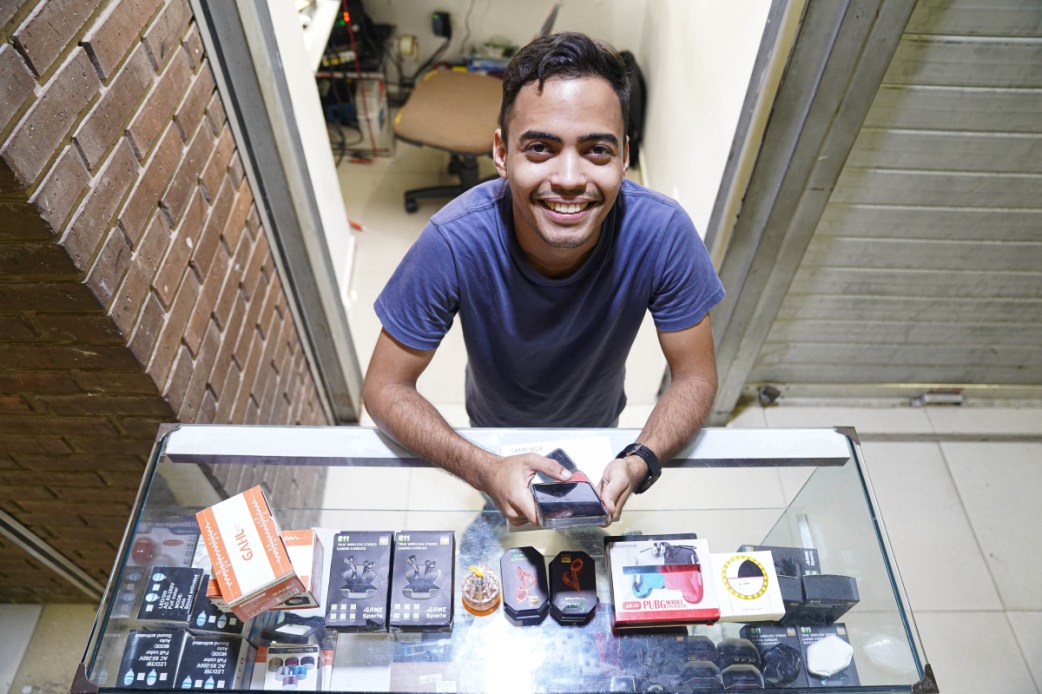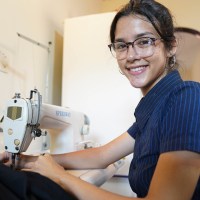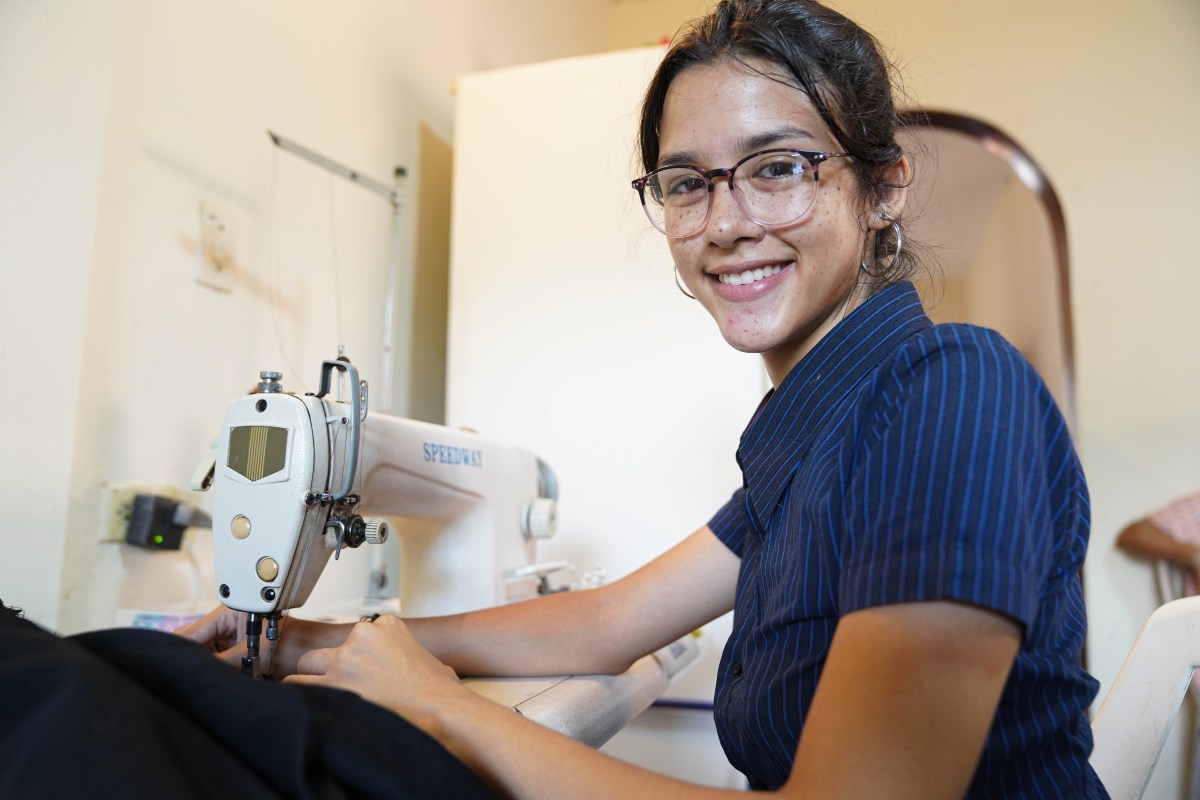“I’m tired of pink clothes,” laments Rosa, only half-joking. Barbiecore has invaded Zulia, a state in northwestern Venezuela, too. In the months leading up to Barbie’s release, lots of Rosa’s customers ordered pink clothes to be made. Rosa and her mother, Sara* participated in our jobs empowerment program, opening a sewing business last year. Thanks to your generosity, they received a grant to start a micro business and regular one-to-one coaching during the first year of operations. We’ve just conducted our last site visit and are happy to report their business is growing.
At first, Rosa and Sara gained clients through word of mouth. After seven months of being open, Sara started wearing her designs to her university classes to advertise them, and her business grew. (She made the dress she is wearing in the photo.) Her next focus is to make the business sustainable by using recycled fabrics. She has just made her first foray into sustainable fashion, creating hats out of recycled materials.
In Venezuela, where an economic collapse and deep poverty have forced more than 7 million people from their homes, owning a profitable business is the difference between being able to stay in your community, surrounded by the people you love, or having to leave. For Rosa, sewing connects her to her family heritage. Rosa learned to sew from her mother, who learned from her mother. They are three generations of women sewers living together in the home where Rosa and Sara have their shop.

Marcos* opened Kaizen, a barber shop, in his home last year. The shop’s name means continuous improvement in Japanese, a work ethos Marcos takes to heart. At 21, he is the sole provider for his mother, father, brother, and grandmother. With the profits from his business, he was able to repair the family’s roof.
In the spirit of Kaizen, Marcos is adding a room to the family’s house to expand his business. He currently cuts clients’ hair in the living room, but the addition will enable him to offer hair coloring services. “This project arrived when it needed to arrive,” Marcos says as he plans for his upcoming wedding in December.

Martin* thinks his first year of being in business went fast. You supported his phone repair and electronics store, which enabled him to move full-time into a storefront in a popular mall last July. During his one-to-one mentoring sessions, Martin focused on marketing to grow his business. Since we last visited, he has invested in lights and a sign so people can easily find his shop. Another goal was to develop a social media strategy to improve brand awareness. He started to give technology tips on Instagram but pivoted to posting tech tips on his WhatsApp status because his WhatsApp had a bigger reach. His strategy is paying off because last month’s income almost doubled! He will continue giving tips and sharing technology knowledge on social media.
You supported five entrepreneurs to open micro businesses in Zulia last July. One business is struggling while the other has closed. But for Rosa, Sara, Marcos, and Martin, your encouragement has been a lifeline. They can put food on the table and take care of their families. They have businesses they own and are proud of, reaffirming a sense of self-worth and agency. And their businesses revitalize their communities as people spend money locally. None of this would be possible without our community of peacebuilders who love where they are, love boldly, and love anyway.
Peace starts with people. Invest in people. Consider supporting entrepreneurs in our jobs empowerment program.
*Not their real names


